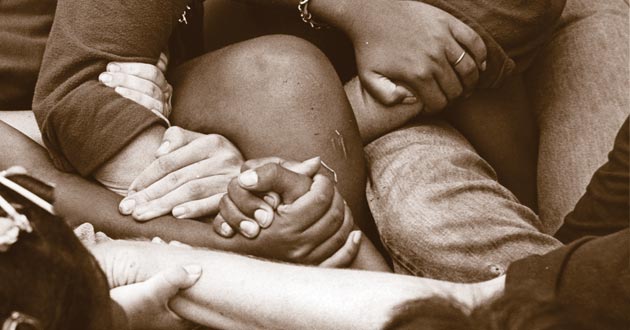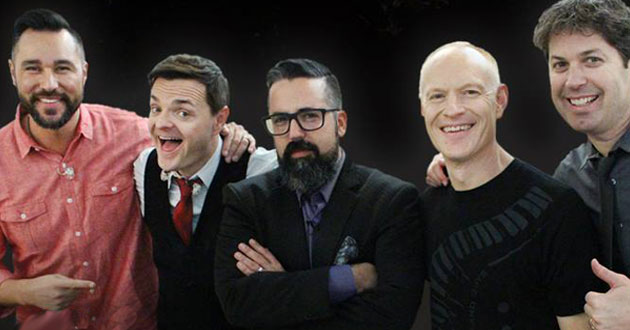The costly work of peacemaking

The world is swirling with issues.
Picking up my phone and opening my news app each morning is being met with more and more dread each day.
When something hits the news, it is fascinating to watch people jump onto social media and begin “yelling” out their answers for how to heal our broken systems.
Of course, there are almost always at least two completely different opinions for how these problems should be fixed, which typically leads to people drawing lines in the sand, picking their stance and not budging. Relationships often fracture and a polarized world gets more polarized, rendering it immobilized for the work of reconciliation.
Whether it’s on our Facebook page, Twitter feed or around our table, I assume most of us can think of an interaction where this unhelpful and potentially destructive reality played out.
So, does this “yelling” of our opinions actually help heal the broken systems and the people whom those systems are breaking?
I’m all about using our voices to call out injustice. By offering a critique of power and a hope for those on the underside of it, the ancient prophets did this beautifully throughout history.
But, in a globalized, virtually interconnected world, I’m concerned we have too many self-appointed prophets (which, by definition is NOT a prophet), and not near enough practitioners. Far more constructive than a verbal or written argument is actually doing something.
I don’t think the world needs more armchair advocates…especially when our arguing or defending leads to the fracture of real life relationships. I’m not saying we all need to passively waltz around the world’s issues. No, I’m proposing we actively engage them in two ways:
- Healthy, constructive discourse that doesn’t require that we all agree to remain in relationship.
- We spend less time talking, and use our best energy to actually do something.
What this world needs are people who are willing to roll up their sleeves and get dirty. And not for a week or a month or a year, but for the long haul.
The world needs people embedded in the center of these conflicts equipped with the practices that make for peace. These people don’t have time to debate solutions on social media because they are already hard at work making the solutions a reality. They don’t have to transplant themselves to the center of the issue, because they are already embedded in it. They don’t have to seek the approval of their constituency, because it’s not about their reputation, it’s about the flourishing of those they have been called to serve.
- They are sharing meals with the forgotten in their neighborhood.
- They are building lasting, mutually beneficial relationships with those of other faiths who we are often taught to fear.
- They are sitting at the hospital bedside of the family who is suffering loss at the hands of unjust people and systems.
- They are in the churches, schools and homes of our black and brown communities to listen, learn and support.
- They are in detention centers and deportation shelters to pray with and look in the eyes of those in our society’s shadows.
- They are encouraging and walking with our faith and political leaders as they navigate the potentially compromising positions of power.
It’s a way of life that is costly. It is not glamorous. And it often comes without our desired outcomes being met in the short term and, potentially, not even in the long term.
This is the work of a trained, strategic and intentional community of Jesus followers who are prepared to move to the center of our society’s conflicts with the weapons to transform rather than destroy. It’s the gritty, subversive and costly work of peacemaking.
More than ever, I believe the work of peacemaking is discipleship. It’s the long, hard road of the cross that will lead to the flourishing of others and allow our deepest calling to meet the world’s deepest needs.
May it be so.
— by Jon Huckins
Huckins is the co-founding director of The Global Immersion Project, Missional Leadership Coach with Thresholds, family man, speaker and author of “Thin Places” and “Teaching Through the Art of Storytelling.” jonhuckins.net





